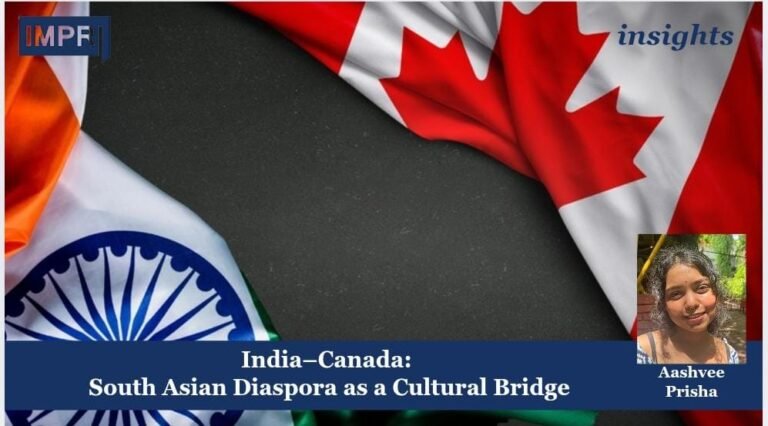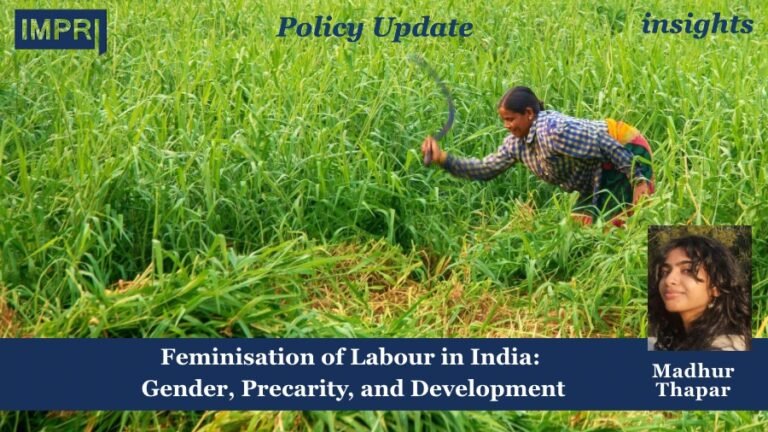Policy Update
Srishtistuti Roy
Background
The Information Technology Act, 2000 (IT Act, 2000) was formulated to provide a legal framework for electronic governance, e-commerce, and cybercrimes. It was established with the aim of ensuring safe digital transactions and reducing cybercrimes on the basis of the United Nations Model Law on Electronic Commerce 1996 (UNCITRAL Model).
With the rapid evolution of the digital ecosystem in the past two decades, the need to address user safety on digital platforms including social media and online gaming, dissemination of misinformation and fake news, and the responsibilities of intermediaries was subsequently felt by the Union Government. Consequently, the Information Technology (Intermediary Guidelines and Digital Media Ethics Code) Rules, 2021 (IT Rules, 2021) underwent two consecutive amendment proposals and gave way to the IT Amendment Rules, 2023.
Notified on 6th April, 2023 by the Ministry of Electronic and Information Technology (MeitY), the IT Amendment Rules, 2023 seek to regulate online gaming by mandating their verification, registration, and transparency regarding privacy policies as well as user agreements. It also seeks to enhance accountability of online gaming intermediaries by ensuring their due diligence to ethical conduct as well as content.
Parallely, the IT Amendment Rules, 2023 also seek to enable the removal of any information related to the Union Government considered as ‘fake,’ ‘false,’ or ‘misleading’ as identified by the fact-checking unit of the Press Information Bureau (PIB) or any other agency of the Union Government. Yet, on 21st March 2024, weeks prior to the general elections, the Supreme Court stayed the Union’s notification that sought to establish such a unit.
Functioning
In addition to the Grievance Appellate Committee established by the previous amendment, the IT Amendment Rules, 2023 mandates several due diligence requirements for all intermediaries involved in the digital space. To regulate online gaming intermediaries, the Rules set up the provision of Self-Regulatory Bodies. Additionally, with the aim of increasing accountability, the Rules also establish certain measures to be undertaken by the intermediaries as well as units or agencies of the Union in cases of non-compliance with the due diligence requirements or rules and regulations of the digital platforms.
- Due Diligence by Intermediaries: Intermediaries are entities that store or transmit data on behalf of other persons, and include telecom and internet service providers, online marketplaces, search engines, and social media sites including news publishers and current affairs curators. Through the IT Amendment Rules, 2023 online gaming intermediaries have also been included under this purview. With the aim of educating and informing users, the Rules mandate that such intermediaries are required to publish on their websites, mobile based applications or both, the rules and regulations, privacy policies, and user agreements in English or any language included in the Eighth Schedule of the Constitution as per the user’s choice. Additionally, Rule 3(1)(b)(v) has been amended to make sure that all intermediaries ‘make reasonable efforts to’ ensure that users do not publish any information that is identified as false or fake by the fact-check unit of the Press Information Bureau (PIB) or any centrally authorised agency. Rule 3(1)(b)(ix) mandates that intermediaries must ensure that users do not host or advertise any online game that does not conform to the laws of the land, especially laws relating to betting, gambling and the age at which an individual is competent to enter into a contract. Furthermore, an online gaming intermediary must warrant additional due diligence by measures such as displaying a random number generator and a no-bot certificate.
- Self-Regulatory Bodies: Rule 2(1)(qc) provides for the establishment of an online gaming self-regulatory body (SRB) designated by the Union Government for the purpose of verifying ‘permissible online games’, including those that involve real money. The SRB shall have the authority to investigate and ensure that the online game does not involve ‘wagering’ on any outcomes, that the online gaming intermediary and the game comply with the rules of due diligence, and that players meet the legal age requirement. Online games involving real money must observe additional obligations: displaying a mark of verification by the SRB; informing players about the policy for withdrawal or refund of deposit, manner of determination and distribution of winnings, fees and other charges payable; obtaining the KYC details of the users; and disabling credit or financing by third parties to the players. Additionally, the SRB must establish a framework to which all gaming intermediaries must adhere to regarding safeguards against user harm including psychological harm, preventive measures through parental controls, age-rating mechanisms, and protection of users from the risk of gaming addiction.
- Measures for Non-compliance: The IT Amendment Rules, 2023 enable intermediaries to terminate the access or usage rights of users and/or remove any information or content shared by them that does not comply with the rules and regulations, privacy policies and/or user agreements of the digital platform. Additionally, within 72 hours of receiving an order from a court or an agency of the Union Government, intermediaries are obligated to disclose information within their control or possession, or offer assistance to any government agency that is lawfully authorised to conduct investigative, protective, or cybersecurity activities for the purposes of identity verification or for the prevention, detection, investigation, or prosecution of offences under any current law, or for cybersecurity incidents. However, if intermediaries fail to comply with such an order or any of the due diligence requirements, Rule 7 revokes the legal protection previously accorded to them by section 79 of the IT Act, 2000.
Impact
The IT Amendment Rules, 2023 have had notable impacts on various stakeholders.
- For users, the increased safety measures, especially ones pertaining to explicit content, has enhanced their trust in digital platforms. Transparency regarding privacy policies and storage of user data has also allayed fears about arbitrary data mining to some extent.
- Contrarily, for intermediaries, especially media houses, the loss of legal protection has caused much concern. Organisations such as the Editors’ Guild of India, Indian Newspaper Society, and Asia Internet Coalition have expressed alarm about the same while Kunal Kamra, a political satirist and standup comedian, has challenged the constitutional validity of the Rules at Bombay High Court. In June 2023, the Association of Indian Magazines (AIM) and the Editors’ Guild of India also filed a writ petition challenging the IT Amendment Rules, 2023 in the Bombay High Court and these petitions were clubbed with Kamra’s petition.
- Additionally, the fact-checking amendments have also raised questions about the negative impact on free speech on the internet. On 21 April 2023, the Union responded to Kamra’s petition and termed it “premature.” They stated that the Rules were issued in “public interest” to prevent the spread of “false news.” They argued that fact-checking will be carried out on the basis of evidence. Further, all aggrieved persons will have the remedy to approach a court if their information is flagged and taken down. In January 2024, the Bombay High Court delivered a split verdict on Kamra’s petition: while Justice Patel held that the fact-check amendment must be struck down, Justice Gokhale held a contrary view. Following this judgement, Kamra appealed to the Supreme Court and in March 2024, the Supreme Court put a stay on the Union’s notification which sought to establish the fact-check unit.
- However, the amendments to regulate the online gaming ecosystem have been welcomed for prioritising the safety and age requirements of users while increasing the accountability of the intermediaries involved.
Emerging Issues
- Conflict with Fundamental Rights: Article 19(2) mandates that freedom of speech and expression may be restricted only on grounds of national security, public order, decency or morality, contempt of court, defamation, or incitement to an offence. Thus, false information is not a valid constitutional ground for restricting this freedom. Parallely, journalists and news publishers use the internet for disseminating news and opinion pieces, which if identified as false by the PIB or other fact-checking units of the government, can be removed. This may not only violate freedom of speech and expression by enabling censorship, but also the freedom of journalists to practise their profession and the freedom of press at large. Thus, the fact-checking amendments that enable the removal of information contradict not only the Supreme Court judgement delivered in Shreya Singhal v. Union of India, 2015 but also the Supreme Court judgement given in Anuradha Bhasin v. Union of India, 2020.
- Pre-existing Measures to Regulate False Information: Dissemination of false information through electronic means and defamation is already regulated in section 353 and 356 of the Bharatiya Nyay Sanhita (BNS, 2023). Priorly, it had been regulated through the Indian Penal Code (IPC, 1860) as well. The Consumer Protection Act, 2019 also prohibits misleading advertisements. Additionally, social media intermediaries also regulate misleading or false information through community standards or guidelines and by enabling users to report such content. Thus, these pre-existing provisions have prompted stakeholders to question the factual need for formulating the IT Amendment Rules, 2023.
- Government-regulated Online Gaming: While the e-gaming industry contributes significantly to the growth of India’s digital economy, it also grapples with detrimental factors such as money laundering scams, high taxation, and negative psycho-social impacts. Thus, the proposal to create more than one SRB had at its heart the aim to regulate online gaming involving real money. However, in early 2024 the MeitY determined that SRBs might lack neutrality and independence under the influence of industry giants and scrapped the proposal. Presently, the Government is the sole regulator of online gaming in light of the inability to reach a consensus with stakeholders regarding the framework for regulating the e-gaming industry. This has led to some apprehension about the government’s absolute power over the decision-making process.
Way Forward
Ever since the government notified the IT Amendment Rules, 2023 it has been embroiled in court cases, which has delayed its full-fledged implementation, thereby providing the Union Government with ample opportunity to work on the concerns raised by the stakeholders.
Providing a precise definition of ‘false’ information can be the key to ensuring user safety while not encroaching upon fundamental freedoms. Striking a balance between innovation and regulation is also pertinent in aiding the online gaming industry to flourish because excessive regulation may stifle growth of the industry altogether. The issue of excessive data mining by intermediaries in order to regulate information on digital platforms must be addressed through robust data protection measures to safeguard privacy of the users. Furthermore, consultations with the various intermediaries involved, especially in online gaming and digital media houses, must be carried out by the Government to rightly understand and address the concerns with the IT Amendment Rules, 2023.
Conclusion
The IT Amendment Rules, 2023, mark a significant advancement in regulating India’s digital landscape, ensuring enhanced accountability while tapping into the huge potential of the e-gaming industry.. By reinforcing due diligence requirements for intermediaries, establishing a robust code of ethics for digital media, and extending regulatory oversight to online gaming, the amendment addresses contemporary challenges in the fast-evolving digital space. Yet, it is crucial to continuously engage with stakeholders, provide support for compliance, and safeguard user privacy without encroaching upon fundamental rights to truly ensure an ‘open, safe, trusted and accountable internet’ ecosystem. Periodic reviews and adaptive measures will be essential to keep the regulations relevant and effective in the face of emerging digital threats and opportunities.
References
- The Gazette of India, Ministry of Law, Justice and Company Affairs (Legislative Department). (2000). The Information Technology Act, 2000
- Ministry of Electronics and Information Technology (MeitY). (2021). The Information Technology (Intermediary Guidelines and Digital Media Ethics Code) Rules, 2021
- The Gazette of India, MeitY. (2023). The Information Technology (Intermediary Guidelines and Digital Media Ethics Code) Amendment Rules, 2023
- Press Information Bureau. (2023). Government Notifies Amendments to the Information Technology (Intermediary Guidelines and Digital Media Ethics code) rules, 2021
- PRS Legislative Research. (n.d.). Amendments to It Rules, 2021
- Panjiar, T. & Waghre, P. (2023). IT Amendment Rules, 2023 are a nightmare, dressed like a fact checking daydream. Internet Freedom Foundation
- Supreme Court of India. (2015). Shreya Singhal v. Union of India, Writ Petition (Criminal) No. 167 Of 2012
- Supreme Court of India. (2020). Anuradha Bhasin v. Union of India, Writ Petition (Civil) No. 1031 of 2019 and 1164 of 2019
- High Court of Bombay. (2023). Kunal Kamra v. Union of India, 2023
- Supreme Court Observer. (n.d.). Challenge to the IT Rules 2023
- Legal World, The Economic Times. (2024). Government to regulate the online gaming industry whilst awaiting for proposals to set up SRO by the industry
About the Contributor- Srishtistuti Roy is a researcher at IMPRI, New Delhi. She is an alumna of Jadavpur University, Department of International Relations. She has recently completed her postgrad in Gender Studies from the University of North Bengal and hopes to pursue a doctorate soon. Her research interests include South Asian political economy, gender & sustainable development, contemporary social movements, and cultural studies.
Acknowledgement– The author expresses her humble gratitude to Dr. Arjun Kumar, Aasthaba Jadeja, Shivashish Narayan, and Ambika Khemka for their valuable insights.
Read more at IMPRI:



